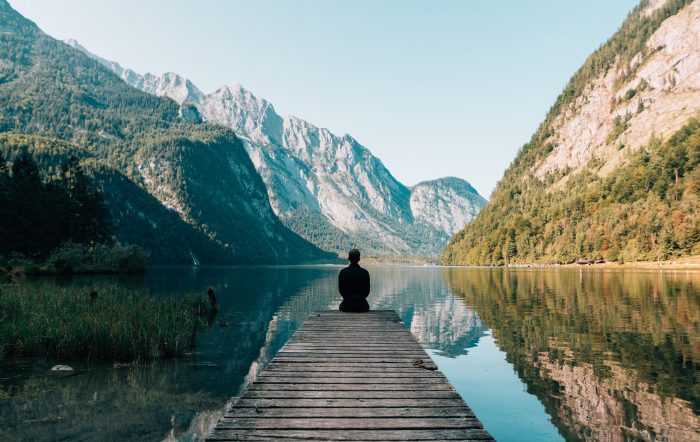Substance abuse and addiction didn’t take time off in 2020. We had lots of other issues to deal with in this past year of the plague: social isolation, fear of infection, worry about loved ones, not to mention unemployment, homeschooling, and home cooking, along with statistical increases in child abuse, suicide, and—not a surprise!—addiction. According to Millennium Health, a drug-testing laboratory, cocaine abuse was up 10 percent this year; heroin, 13 percent; methamphetamines, 20 percent; and non-prescribed fentanyl, 32 percent. Nationwide, death from drug overdoses has increased by 18 percent. The psychological impact of the COVID-19 pandemic is undeniable, and whenever there is increased fear and anger, there are usually increases in substance abuse.
I come, however, with a message of hope. The community that supports substance recovery has found new ways to meet the need for help. My own first steps toward sobriety were supported by daily meetings, which are now largely impossible in this time of enforced social distancing. What this means is that AA (Alcoholics Anonymous) and NA (Narcotics Anonymous) are now working online. These two worldwide organizations serve millions of recovering alcoholics and addicts—and if electronic meetings don’t offer the same hugs and back-patting as in-person meetings, still the support of a smile and a friendly word can be a lifeline when it’s offered at the right time.
Not everyone has access to a computer, but if you’re reading this article, you probably do. Here are the links you can follow to find an AA or NA meeting anywhere in the world at any time of day:
Alcoholics Anonymous : Online Intergroup (aa.org)
My first connection with AA happened when I was in prison. If it weren’t for the AA volunteers who brought a message of recovery into prison, I wouldn’t be writing this article today. The day I was released from prison, a volunteer picked me up and took me to my first meeting—where I got a sponsor and started working the twelve steps. This is how I got clean.
I am now a facilitator in two twelve-step programs, one in a prison and the other in county jail, and so I know that it’s only now—eleven months into the pandemic—that some prisons and jails are setting up secure video chat rooms to accommodate outside groups. So, this hasn’t been happening, but it’s beginning to now.
It has been demonstrated again and again that, for most of us, self-effort isn’t enough to get clear of addiction. However, self-effort is still a big help. With that in mind, let me recommend a tool that anyone can use to combat the negativity, judgment, and self-pity that tempts a recovering addict to go back to drugs. This is a simple matter of giving yourself a tool to change your perception.
This tool involves dividing your day into three parts—morning, noon, and evening—and then making an agreement with yourself that for each of these parts of the day, you will begin it with something that is restful for your mind. And, no, you don’t get to pick this “restful” activity yourself. I have some exercises to recommend.
In the morning, sit for at least ten minutes of meditation. If you’ve never meditated before, I suggest that you sit so that your back is erect, close your eyes, and watch your breathing. I mean that literally: pay attention to the breath, as it comes into your body and then as it leaves your body. You don’t have to do anything else—and you don’t have to think of anything else. If your mind is latching on to something, tell your mind that this is its time to relax. It can think later. And go back to watching your breath.
After you’ve finished the ten minutes of meditation, make a list for yourself. Write down five things you are grateful for and, briefly, the reasons you’re grateful for each. If you make this list every morning, you might find it’s the same five things you write down. That’s fine. When I first got clean, as strange as it may seem, the State Department of Corrections, outpatient treatment, the court system, and my addiction were always on my gratitude list. Within thirty days I had graduated from outpatient (eleven weeks early), the court dropped a charge for driving while intoxicated, and I was released from the Department of Corrections. Coincidence? I don’t think so. I find that the events of a person’s life will often reflect their inner state.
So, then at noon, take a pause from your day. Go outside or—at least—look outside and consciously connect with nature. Quiet your mind and pay attention to the clouds, the trees, the grass—to any wildlife you can glimpse. Imagine that there is rejuvenating power in the air and that with each breath you are taking this power into yourself. This, too, is a daily practice for me: to connect with nature and rid myself of anxiety and any negative thoughts or self-pity that may have crept in since my morning meditation.
At night seek out a way to be of service to someone else. This is one of the best ways to get out of your own problems—drop your assessment of your own situation and seek fulfillment through kindness to others. It can be as simple as writing a letter—a physical letter that you actually put a stamp on and put in the mailbox—or calling a friend to let them know you’re thinking about them or starting a text feed and sending out uplifting quotes. Lastly, I suggest reading ten pages of a good book before you call it a night. In selecting the book, find something that will fill your mind with positive reinforcement.
I don’t like to make promises, but if you employ this morning-noon-and-night routine, I think I can guarantee that your life will change for the better.
Over the eight years of my sobriety, I have found that these practices have been an effective tool to silence what I call the committee of my mind.
And, of all of these practices, I believe that service to others has been the most helpful in my own recovery. Since 2013 I have been helping other addicts to find recovery through AA’s twelve steps, meditation, positive affirmations, dream boards, and goal sheets. It is the brightest spot of my life. To my mind, there is no greater joy than watching people get their lives back, their loved ones back—watching them, in short, learn how to put together a happy and healthy life. My recovery literally depends upon helping others.
I suppose that’s because connection is one of the most important nourishments we can have. And this is why I urge anyone who is struggling with addiction, trying to become anchored in positivity, to please use the links to AA and NA that I’ve given. In fact, they’re so important that I’ll repeat them here:
Alcoholics Anonymous : Online Intergroup (aa.org)
Just think: a helping hand at any time of day, anyplace in the world!
Remember that action is the fruit of your own thoughts. Right thinking will influence your purpose, your health, your ambition, and the changes you bring to bear in your life. If you truly want change in your life, right now is an excellent time to begin the uncomfortable journey inward to peace and serenity. Addicts do recover, and recovery is possible for you no matter what your life circumstance might be.











Read 0 comments and reply